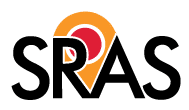I spent the day running a few errands in Moscow. This may the last time I can say this for a while. The majority of SRAS students have left or are leaving Russia. In what should be the middle of the semester, I’m already wrapping some things up.
Moscow will also close some services to encourage people to self-isolate. Schools and universities are going online, sporting events are cancelled, and museums are expected to close. My family and I will be settling into our neighborhood at the edge of Moscow. So, here I am enjoying the beauty of the historic city center while I’m here.
With an exponentially accelerating news cycle, the last couple of weeks have felt surreal. One by one US universities have recalled students and governments worldwide have implemented travel restrictions. It was the latter that led us, as an organization, to eventually advise the last of our students to head home. Although SRAS locations have low COVID-19 rates, the risk of closed borders was suddenly quite real.
A silver lining to all this is that all our students will have access to online instruction. We are working to make sure that they can still get in enough hours to hopefully ensure that their semester can be judged a success. Yet all this is unprecedented and we still have much work ahead to see it all through.
In Moscow, the public mood is mixed. The news speaks regularly of the pandemic. Everywhere, you can hear people speaking about coronavirus (which is the same in Russian: “коронавирус”). The metro and the city center felt light today, although not strikingly so. Most of the major measures encouraging self-isolation will go into effect starting Monday. There are nurses at the doors of hospitals, children’s activity centers, and even in some parts of the metro, checking the temperatures of all who pass.
The new reality can be most felt in the changed details of local neighborhoods. Schools have been on optional attendance for about a week and groups of school kids can be seen calmly hanging out on playgrounds and benches during the day. Parking lots seem extra full as more people stay in. Local police have increased patrols throughout the city.
Russia’s great crisis barometer, however, is always the buckwheat aisle at the local grocery store. I’ve lived through a few crises in Russia – the economic crisis of 2008, the ruble meltdown of 2014, and now the global health crisis of 2020. At each turn, Russians have always turned to one item: buckwheat. As soon as any sign of crisis can be felt, this traditional staple is snapped off the shelves, a sign that Russians are calmly and logically planning how to make it through the next challenge. (And there are some good reasons for this – we’ve written about them here.)
The generally calm and practical nature of the Russians is something I’ve always respected. It’s also something I’ve always valued in my place of place of employment.
SRAS views this as the crisis that it is, but also as something we can get through with proper planning. We will also not simply shut down over what could be a very quiet summer. We have always been an organization with far more ideas than time. The next few months will thus be used to play with more of our backburner ideas. We hope to come out of this summer with new materials, improved internal processes, and even more ideas on how to excite students about thinking globally and learning languages.


